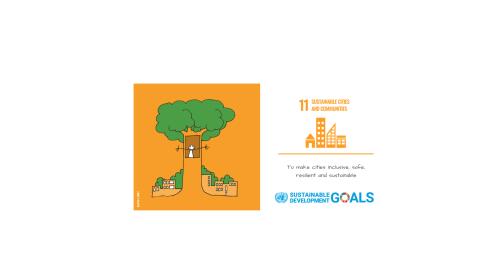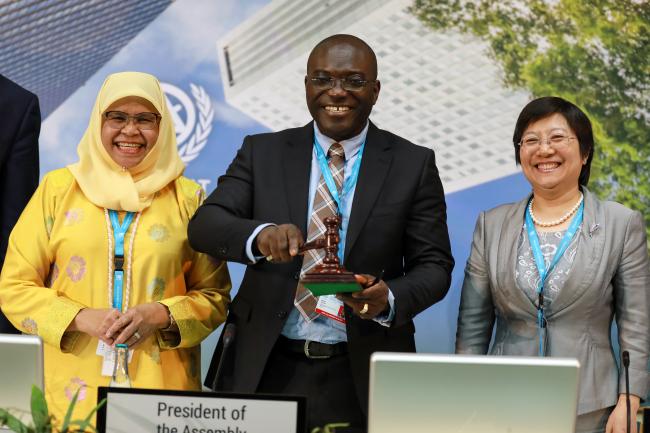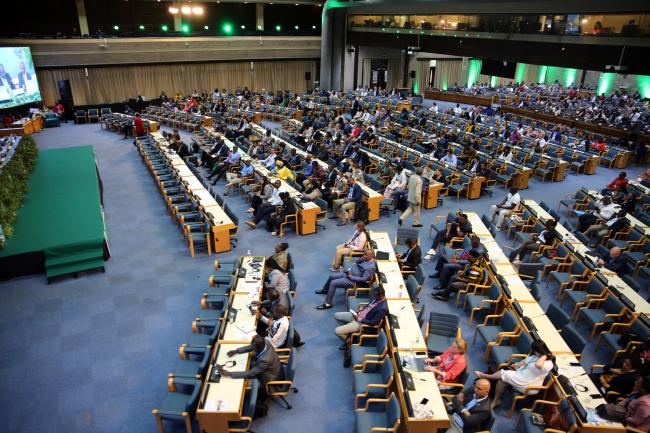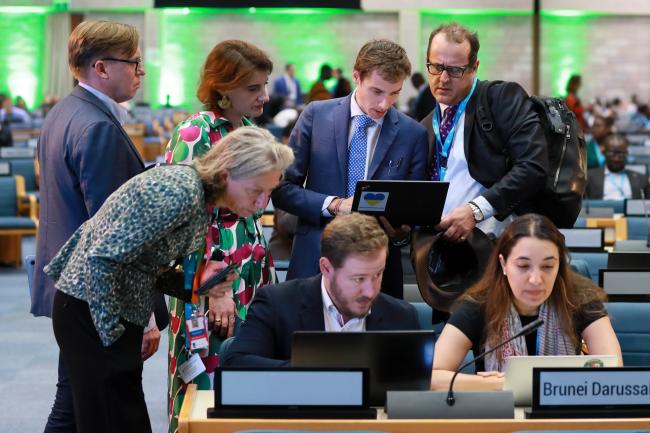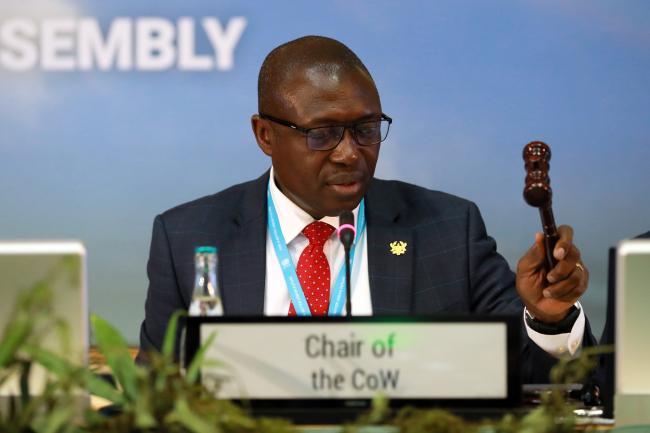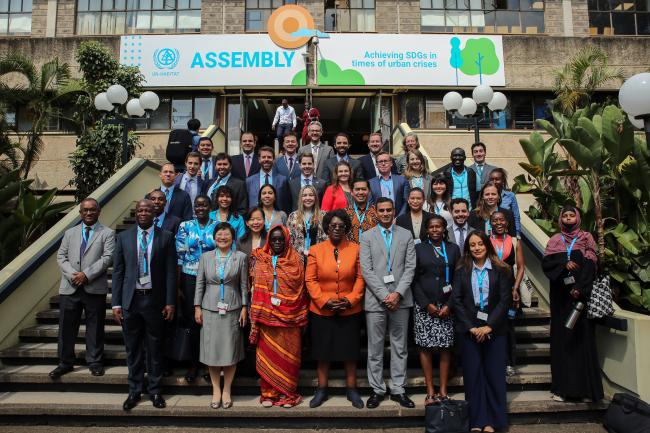“UN-Habitat is back!” proclaimed UN-Habitat Executive Director Maimunah Mohd Sharif after delegates unanimously approved the Ministerial Declaration and 10 resolutions during the final day of the Second Session of the UN-Habitat Assembly (UNHA2). These outcomes set marching orders for the organization over the next four years and paved the way for targeted funding for issues addressed by the resolutions. Through the resolution adopted on equitable financing and effective monitoring, Member States mandated the creation of a system for tracking the status of the implementation of Assembly resolutions.
In the Ministerial Declaration, titled ‘A Sustainable Urban Future through Inclusive and Effective Multilateralism: Achieving the Sustainable Development Goals in Times of Global Crisis,’ Ministers, among other things, agreed to:
- reaffirm their commitment to the New Urban Agenda (NUA) and its implementation plan;
- welcome the Sharm El-Sheikh Implementation Plan recognizing the role of cities in addressing and responding to climate change, and highlight the urgent need for cooperative action in this regard, within the mandate of UN-Habitat;
- commit themselves to advancing multilateral engagement and international cooperation to address urban crises, the need for adequate housing, localization of the Sustainable Development Goals (SDGs) and the importance of integrated urban development through inclusive urban and territorial planning, multilevel governance, urban climate change adaptation and mitigation, response to natural disasters, and sustainable finance approaches;
- reaffirm the important role of UN-Habitat as the UN focal point for sustainable urbanization and human settlements; and
- commit themselves to strengthening UN-Habitat.
The resolutions cover:
- international guidelines on people-centered smart cities;
- accelerating the transformation of informal settlements and slums by 2030;
- World Cleanup Day;
- biodiverse and resilient cities;
- enhancing the interlinkage between urbanization and climate change resilience;
- localization of SDGs;
- adequate housing for all;
- urban planning and sustainable infrastructure;
- creation of a human settlements resilience framework; and
- equitable financing and effective monitoring of the implementation of UNHA2 resolutions.
In concluding remarks, Executive Director Sharif expressed gratitude to the 52 ministers, 37 deputy ministers and all those that accounted for the 3,433 in-person and 2,084 online attendees. She highlighted the efforts of the Member States, the Drafting Committee and the Committee of the Whole for their collaborative, cooperative and congenial work on the draft resolutions and Ministerial Declaration, and underscored it as a demonstration of effective multilateralism, proving it is not only necessary, but possible, to work together.
Vice-President Martin Adjei-Mensah Korsah, acting as Assembly President, thanked delegates for their cooperation and declared the meeting adjourned at 5:47 pm.
To receive free coverage of global environmental events delivered to your inbox, subscribe to the ENB Update newsletter.
All ENB photos are free to use with attribution. For the 2nd Session of the United Nations Habitat Assembly, please use: Photo by IISD/ENB | Mike Muzurakis
